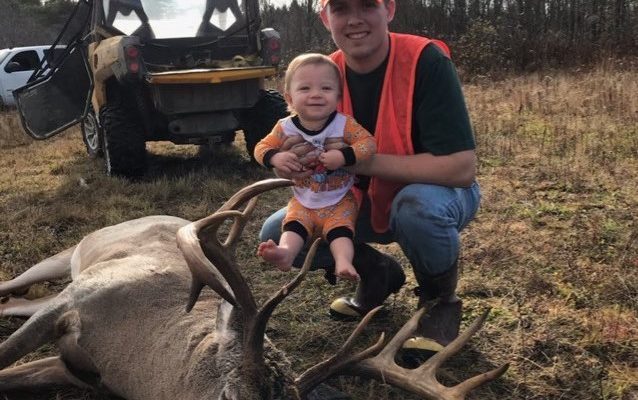
Proposed registration system would let Maine hunters tag their deer online
By Pete Warner, Bangor Daily News Staff
Stopping at the nearest tagging station on the way out of the woods to register and weigh a deer is a longstanding tradition among Maine hunters.
But a proposal by the Maine Department of Inland Fisheries and Wildlife could open the door for hunters to head straight home with their harvest.
The DIF&W on Jan. 10 presented a report to the Legislature’s fisheries and wildlife committee outlining suggestions for providing electronic registration of some big-game species. It examined the potential benefits, challenges and costs associated with offering online tagging for deer, bear, moose and turkeys.
Maine presently requires hunters to take all harvested big-game animals to a licensed tagging station for registration, usually within 18 hours of harvest. The department found merit in supplementing those efforts by integrating electronic tagging of deer and turkeys. Those species, which are more prevalent, would be less harmed by any potential reduction in reporting or bias resulting from self-reporting.
DIF&W hasn’t changed its stance on the value of having big-game animals tagged at a registration station licensed by the state.
“We, as an agency, have long felt that the in-person registration provides a lot of benefits and it’s kind of viewed as the gold standard nationally in terms of harvest reporting because it allows us to collect biological information,” said Nate Webb, wildlife division director at DIF&W.
The department said electronic registration is not suited for bears and moose, which have much lower harvest numbers. Study of those species includes collection of biological samples such as teeth (bears, moose) and ovaries (female moose), along with counting of ticks (moose), some of which require specialized training.
“When your sample size is really high, that’s less impactful than on the management for species like bear and moose in Maine, where the harvest is much lower and every bit of information is more critical to making good management recommendations,” Webb said.
The information collected by DIF&W is a critical component of its efforts to manage Maine’s big-game species. The report provides information about how the department might account for any unexpected changes.
Webb said obtaining adequate biological samples to monitor the age, growth and health of deer in northern Maine, where the population is low and the territory vast, could be problematic with less reliance on in-person tagging.
The DIF&W said because fewer hunters will register their animals in a self-reporting system, harvest numbers may be underreported, as has been the case in other states. That means population estimates will be less reliable and might, in an extreme case, force DIF&W to reduce season lengths and harvest numbers to avoid exceeding their management goals.
The report points out that electronic tagging is being done in other New England states. Massachusetts, Vermont and Rhode Island have some form of electronic big-game registration for deer, while New Hampshire is working on developing a system.
Massachusetts, Vermont and Rhode Island also offer in-person tagging of deer, whether all season, during select weeks or on specific days. Quebec has both online and in-person registration and 75 percent of hunters used the electronic method in 2021.
“Many other states have successfully used electronic tagging or self-reporting for deer and turkey and we believe we could adapt [to that],” said Webb, who admitted there is uncertainty about what kind of hybrid system using in-person tagging and online registration would work best.
DIF&W estimated that including an electronic registration option would cost an additional $250,000 per year. Much of that increase would be attached to hiring more staff to procure biological samples from game registered electronically.
Webb said the state’s online system would have to be simplified to make it easy for everyone to use and DIF&W conceded that it must simplify its license and permit framework.
The report recommended that because of the complexity of the proposed changes, they should be phased in over time if they become law. It suggested implementing online turkey registrations first during the spring of 2024 and beginning the deer effort during the fall 2024 season.
The matter is now in the hands of the fisheries and wildlife committee, which may ask DIF&W for changes or clarifications before putting it out for a vote by the full Legislature.